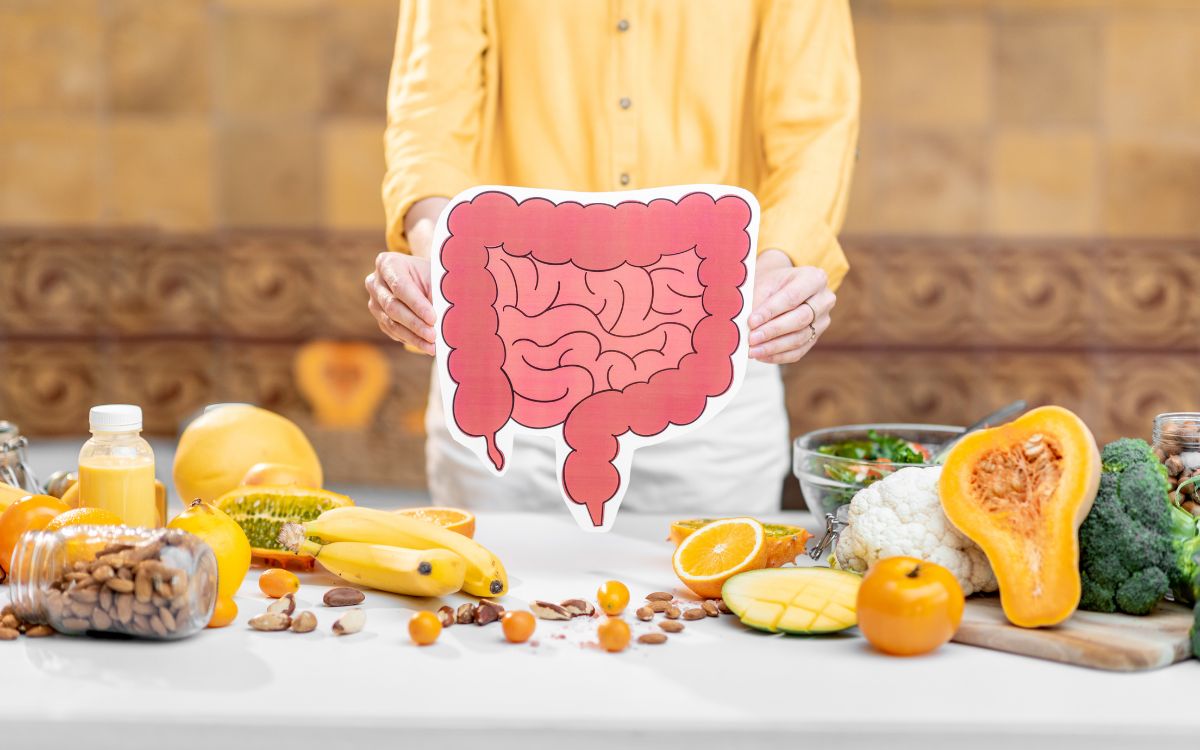Your gut health may not be something you think about every day, but the truth is that it’s an integral part of your overall well-being.
A healthy gut means improved digestion, better nutrient absorption, and increased immunity – all of which can have a positive impact on physical and mental health.
Fortunately, there are simple steps you can take to improve your gut health.
From eating probiotic-rich foods to reducing stress levels, here are 10 ways you can support a healthy digestive system and boost your well-being in the process.
10 Ways to Improve Your Gut Health
1. Eat Probiotic-Rich Foods: Incorporate fermented foods like sauerkraut, kimchi, yogurt, and kefir into your diet to help restore beneficial bacteria in the gut.
2. Take a High-Quality Probiotic Supplement: Adding a probiotic supplement to your daily routine is an easy way to increase the diversity and amount of healthy bacteria in your gut.
3. Add Prebiotic Foods to Your Diet: While probiotics are great for restoring beneficial bacteria, prebiotic foods provide nourishment for those bacteria. Include sources like garlic, onions, asparagus, bananas, and oats into your meals.
4. Reduce Stress Levels: Stress can disrupt your gut bacteria balance and make digestive issues worse. Make sure to include activities like yoga, meditation, and deep breathing into your daily routine.
5. Exercise Regularly: Physical activity helps stimulate the movement of food through your system, supports digestion, and may help reduce digestive discomfort. Aim for 30 minutes of moderate-intensity exercise at least 5 days a week.
6. Get Enough Sleep: Poor sleep can cause digestive issues and increase stress levels, so aim for 7-9 hours of sleep each night.
7. Avoid Unnecessary Antibiotics: Antibiotics kill the good bacteria in your gut along with the bad, so only use them if they’re absolutely necessary.
8. Avoid Smoking and Alcohol: Smoking can harm the digestive system and make it difficult to absorb nutrients from food, while drinking alcohol in excess may interfere with digestion and increase inflammation in the body.
9. Don’t Eat Too Quickly: Eating quickly reduces the amount of time your body has to digest and absorb nutrients. Aim to chew each bite 20-30 times before swallowing.
10. Drink Water: Staying hydrated is important for digestion, so make sure you’re drinking enough water throughout the day.
By incorporating these simple tips into your lifestyle, you can help restore balance to your gut and reap the rewards of improved digestive health.
Why It’s Important To Avoid Unnecessary Antibiotics, Smoking, And Alcohol
It’s important to avoid unnecessary antibiotics, smoking, and alcohol for several reasons. Unnecessary use of antibiotics can reduce the amount of beneficial bacteria in your gut, making it more difficult for you to absorb nutrients from food.
Overuse of antibiotics can also lead to antibiotic resistance, which makes it harder for doctors to treat bacterial infections.
Smoking can damage the cells in your digestive system and make it harder for your body to process and absorb nutrients.
Alcohol can irritate the digestive system and increase inflammation throughout your body, both of which can have a negative impact on digestion.
It’s also important to note that drinking alcohol in excess can lead to long-term health problems like liver damage and certain cancers.
By avoiding unnecessary antibiotics, smoking, and alcohol you can help maintain a healthy balance of bacteria in your gut and support digestive health.
Tips For Eating Slowly And Drinking Enough Water Throughout The Day
Tips for eating slowly include:
1. Pay attention to how much you’re eating and put down your fork between bites.
2. Chew each bite of food thoroughly (20-30 times) before swallowing.
3. Take breaks from eating to breathe and savor the taste of your food.
4. If you’re feeling full, stop eating before you finish your meal.
Tips for drinking enough water throughout the day include:
1. Carry a refillable water bottle with you and make sure to drink from it often.
2. Add some flavor to your water by adding slices of citrus fruits like lemon or lime.
3. Set reminders on your phone or calendar to drink a glass of water every hour or two.
4. Try drinking water before, during, and after each meal.
5. Eat foods that are high in water content, such as melons, cucumbers, and celery.
6. Drink herbal teas throughout the day.
By following these tips you can help ensure that you’re getting enough water throughout the day and eating your meals slowly, which can in turn help improve your digestion.
Conclusion
Improving your gut health is an important part of overall well-being, and there are many simple steps you can take to restore balance in your digestive system.
Eating slowly, drinking enough water throughout the day, exercising regularly, getting adequate sleep, and avoiding unnecessary use of antibiotics, smoking, and alcohol can all help improve digestion and support a healthy gut microbiome.
By incorporating these habits into your lifestyle you’ll be able to reap the rewards of improved gut health for years to come.
Take the first step towards improving your gut health today! Start eating slowly and drinking enough water throughout the day, and begin incorporating other habits like regular exercise into your routine. With dedication and commitment, you can restore balance in your digestive system and start feeling the benefits of improved gut health.
